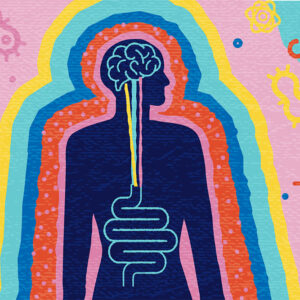
Weekend Sleeping Patterns Contribute to Obesity, Heart Disease, and Diabetes
- New study shows Monday mornings may be destroying your health.
- Do you suffer from social jet lag?
- Want better sleep hygiene? Here are four easy tips to get started.
Dear Reader,
6:31 a.m.: Cool, I’ve got 15 minutes.
7:01 a.m.: Yikes! I better get up.
7:03 a.m.: For real this time. Two feet on the floor — it’s not that hard.
7:11 a.m.: Wait… It’s Saturday.
10:14 a.m.: Ahhhhhh (stretch), what a beautiful morning. Too bad I missed most of it.
This my thought pattern every weekend morning.
I always wake up a few times in a panic, usually trying to gauge if I have enough time to do a little yoga, walk my dogs, shower, pack my lunch, and make my way to the office before 9 a.m.
And then I remember its Saturday.
Glorious Saturday.
I float right back to sleep for another couple of hours — sometimes three if it’s a dreary morning.
I know. I know. An adult (and health writer) is not supposed to have the sleeping patterns of a teenager.
But like most folks, I have long weekdays — usually 18 jam packed hours a day of working, exercising, socializing, cleaning, cooking, household business, and miscellaneous life stuff.
When I get the chance to sneak in a few extra hours of sleep a couple mornings a week, I always take it.
However, my body pays the price for it.
I stay up way past my usual bed time on Saturday night. Then I sleep away Sunday morning and, stay up way too late on Sunday night.
As you probably have already figured, this makes for awful Monday mornings.
But grumpy Mondays aren’t the worst of my problems.
My ever-fluctuating sleeping pattern also makes for some very serious health consequences.
We will dig deeper into those in just a moment.
While night shift work is a known offender of good health, “weekend sleep” and other sleep disturbances may be just a detrimental.
There are ways to help reduce these negative effects. I’ll share a few in a bit.
First, let’s sort out what irregular sleep patterns are doing to our health.
Chronotypes, Social Jet Lag, and Bad Health
Biological timing preferences for sleep and social activities can be very different in individuals. Chronotypes is the term used for these preferred sleep and social times.
Our chronotypes are governed by our circadian rhythm (our biological patterns for a 24-hour period) and are influenced by genetic and environmental factors.
Chronotypes can vary between early to late wake-up times. Any of these chronotypes can be functional. It’s social and professional scheduling that interferes with our sleep.
A difference between social and biological time can create a sleep debt or “social jet lag”.
Dr. Till Roenneberg, an expert on chronotypes and social jet lag, further explains this concept in an article in Chronobiology International:
“Societal determination of work times, and sometimes also of free times, interferes with individual sleep preferences. In late chronotypes, the constraints of early work schedules lead to an increasing sleep debt over the week that is compensated for on weekends. The fact that many people in our society shift their sleep and activity times several hours between the work week and the weekend (or other free days) is comparable to jetlag.” 1
Think about how many times a week you discount or rearrange your sleeping schedule due to social obligations.
I quickly added up six hours of sleep debt in just the last week, all due to activities scheduled outside of my chronotype.
Sleep debt is never repaid. While we might feel a bit more refreshed after a weekend sleep in, we actually may have done more damage to our bodies.
In fact, a new study by the Journal of Clinical Endocrinology and Metabolism has linked disrupted sleep patterns to higher insulin resistance, lower HDL (good) cholesterol, higher body mass index, and higher triglycerides. 2
Patricia M. Wong, a graduate student of the University of Pittsburgh in Pittsburgh and a contributor the above mentioned study, reports:
“Other researchers have found that social jet lag relates to obesity and some indicators of cardiovascular function. However, this is the first study to extend upon that work and show that even among healthy, working adults who experience a less extreme range of mismatches in their sleep schedule, social jet lag can contribute to metabolic problems. These metabolic changes can contribute to the development of obesity, diabetes, and cardiovascular disease.”3
With heart disease and diabetes steadily adding to our mortality rate here in America, this is alarming news.
Something as routine as sleeping in all weekend and waking up at your normal time on Monday could be derailing your health.
But it doesn’t have to be this way. There are things you can do to establish a healthy, consistent, and restful sleeping cycle.
While our obligations are rarely congruent with our chronotypes, and we may not be able to control all circadian disruptions — we can make efforts to practice better sleep habits.
Reclaim Your Health With Better Sleep
Practicing good sleep habits, also called sleep hygiene, is not an easy feat. This can be particularly challenging when you have a family, a career, friends, pets, and other responsibilities.
But your health depends on it.
Here are a few tips to get you started:
- Set the stage for sleep: Environment is key factor of healthy sleep. Make sure to keep your sleeping space dark, clutter-free, electronics-free, and cool. Having a tranquil, organized, and distraction-free environment will relax you and promote better sleep. Keeping electronics out of the bedroom also keeps work, friends, family, and the Internet from robbing your zzz’s. Like most folks, I use a cell phone alarm to wake me up. However, I now put my phone on silent, plug it in, and lay it face down across the room from my bed. Putting your phone face down will keep the light generated by notifications from disrupting you. Also, sleep.org recommends maintaining a room temperature between 60-67 degrees Fahrenheit. This range seems to help encourage the body to fall and stay asleep.4
- Define your bed time: Consistently going to bed at a specific time will help you build your sleep routine. Setting an alarm for an hour before your chosen bed time is helpful way to start. This alarm will remind you it’s time to start winding down, take your eyes off of electronic screens, and begin your bedtime rituals. I did this for about two months when I was studying for a certification exam and it helped me stay on track with getting to bed at my designated time.
- You snooze, you lose: Using the snooze button is making your morning worse. While you might think you are getting a few extra minutes of sleep, you’re actually resetting your brain’s sleep cycle. When the alarm goes off again, you have likely entered a deeper sleep cycle. Waking from this cycle can make you groggier than you were when you woke up from the first alarm.5 I was once guilty of setting my alarm ambitiously early and then snoozing through an hour or so. Now, I set my alarm for a realistic time and feel better in the mornings. Once you figure out what your optimal wake up time is, make sure to rise at this time seven days a week. As hard as that maybe on a weekend or off day, your body will thank you later on. I am going to make this my New Year’s resolution. I will report back in January on how it’s going.
- Try a supplement: With so much going on in your day, it’s sometimes hard to shut off your brain at bed time. A natural supplement maybe a good choice to help aid you in your quest for restorative sleep. Valerian root is a helpful choice for a restless night. Studies have shown valerian root can help you fall asleep quicker and feel like you have experienced better quality sleep.6
Do you have any sleep hacks you want to share? Write me! nmoore@lfb.org
Live well,

Natalie Moore
Managing editor, Living Well Daily
Sources
[1] SOCIAL JETLAG: MISALIGNMENT OF BIOLOGICAL AND SOCIAL TIME
[2] Social Jetlag, Chronotype, and Cardiometabolic Risk
[3] Social Jet Lag May Raise Diabetes, Heart Disease Risk
[4] The Ideal Temperature for Sleep
[5] Science Explains Why You Should Stop Hitting the Snooze Button
[6] Valerian
Written By Natalie Moore
Natalie Moore is a dedicated health researcher with a passion for finding healthy, natural, and science-based solutions. After a decade of direct healthcare experience in western and natural medicine, she was involved in public health research before joining Living Well Daily.
View More Free Articles
The Sunshine Vitamin's Surprising Heart Benefits Revealed
Most folks know that vitamin D is vital for bone health. And if you’re a regular Living Well Daily reader, you also know how critical it is for overall health. But now, incredibly, a new study has revealed something that could change how we think about the “sunshine vitamin” forever. Researchers uncovered evidence that this...
Discover How Gut Bugs Shape Your Brain Health
We’ve all experienced an intuitive “gut feeling” before. But what if I told you your gut is doing FAR more than just sending you hunches? A new study has uncovered a fascinating link between the bacteria in your digestive system and your brain health. It might just change everything we thought we knew about preventing...
Build a Stronger Immune System at Any Age
As we age our immune systems need a little extra TLC to keep us healthy and strong. But don’t worry, boosting your immunity doesn’t have to be complicated or expensive. In fact, some of the best immune-boosting strategies are simple habits you can incorporate into your daily routine. So, let’s dive into some tried-and-true tips...
Natural Solutions to Snoring
Regardless of whether you’re the snorer or the unfortunate bedmate, snoring is a source of stress for countless couples. The endless, rhythmic, sawing sounds can disrupt the rest of even the deepest sleepers. But before you resort to earplugs or separate bedrooms, let’s explore some natural ways to tackle snoring. Snoring isn’t just annoying. It...
Shedding New Light on Depression with this “Sunlight” Hack
You’ve likely heard of Seasonal Affective Disorder (SAD). This form of the blues hits as the leaves fall and the days grow shorter. Well, new research reveals that the same therapy that helps many folks battling SAD feel better could be a ray of hope for those fighting other types of depression, too. Here’s what...
Mailbag: Reverse Atherosclerosis Naturally? Science Says Yes—Here's How
“What actually reverses heart clogging?” -Heartfelt Hi Heartfelt, I have good news. We used to think reversing arterial plaque buildup or “heart clogging” was impossible, but now we know better. When my own patients ask me about atherosclerosis (the medical term for clogged arteries), I explain that—while complete reversal can be challenging—research confirms that specific...
Study Pinpoints Foods That Send Disease Risk Soaring
We’ve all heard that old saying, “You are what you eat.” Well, it’s been around for so long because it’s true. And it turns out your dinner plate could secretly stoke the fires of disease in your body. A new study revealed a shocking truth about the American diet. This time it’s not about calories...
Feast Without Fear of Packing on the Pounds
With all the festive feasts and indulgent treats this holiday season, many of us are already bracing for the inevitable battle of the bulge. But is holiday weight gain really as unavoidable as we think? Let’s unwrap the truth behind this seasonal struggle (pun intended). And I’ll share some simple strategies to keep those extra...
PLAY Your Way to Better Brain Health!?
Are you convinced video games are just for kids? Well, think again! A remarkable new study suggests that playing the RIGHT kinds of games could help turn back the clock on your brain, improving cognitive performance, memory, and more. The best part? You probably already have everything you need to get started—right in your pocket…...
'Tis the Season for A Tumultuous Tummy?
The holiday season is in full swing! And you know what that means… lots of festive food, drinks, and—indigestion. But you don’t have to let a bubbly gut crash YOUR Christmas party. I’ll share some simple hacks to help you keep the festivities going… The holidays are brimming with celebrations and plenty of rich food...









